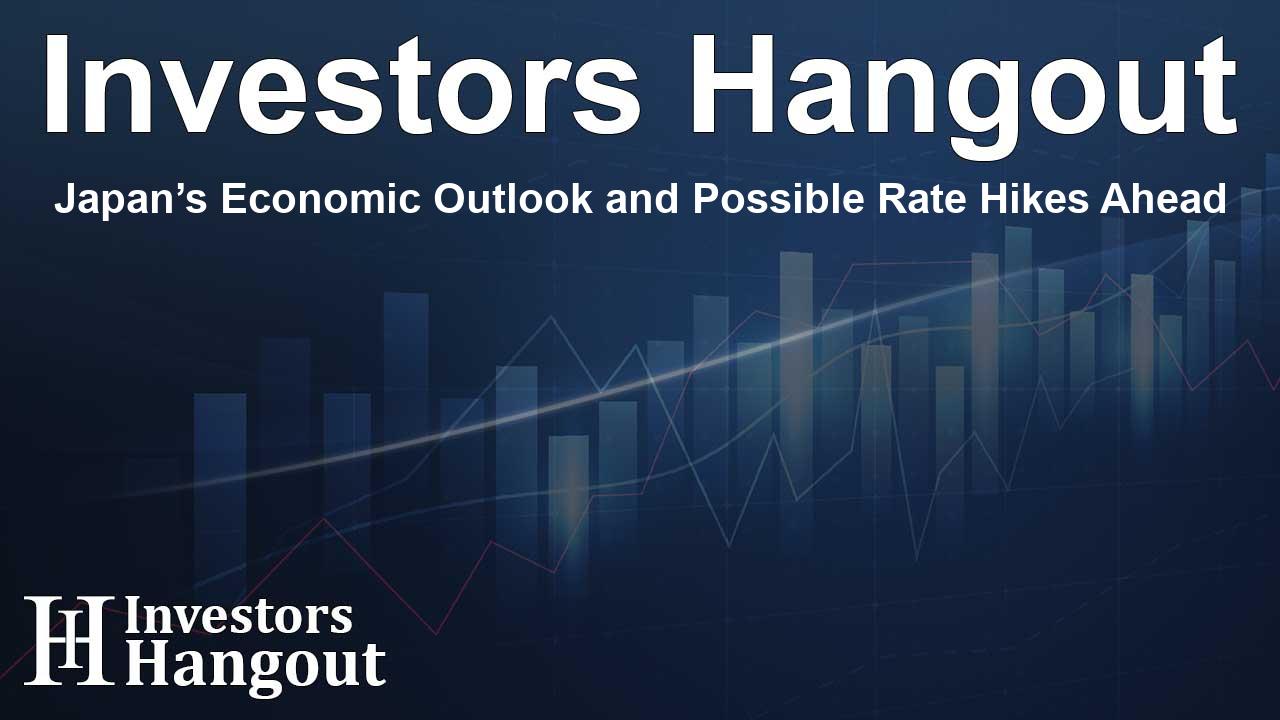Japan’s Economic Outlook and Possible Rate Hikes Ahead

Understanding Japan's Economic Landscape
Japan's economy is currently showing signs of resilience, indicated by improving economic conditions and diminishing fears of a recession in the U.S. This shift creates a favorable outlook for potential interest rate adjustments, possibly occurring in December or January.
Governor Ueda's Cautious Approach
Bank of Japan (BOJ) Governor Kazuo Ueda has signaled a more cautious tone regarding monetary policy, prompting discussions about the timing of potential rate hikes. The new administration under Prime Minister Shigeru Ishiba adds a layer of complexity to these discussions, with differing opinions on further tightening of monetary policy.
Economic Factors Supporting Rate Hikes
Analysts and market sources suggest a strong economic foundation supporting the BOJ's consideration of moving away from historically low rates. Recent assessments show that many policymakers believe a moderate economic recovery is underway, with rising wages driving consumer spending and sustaining inflationary pressures.
Inflation and Its Impact
The BOJ is likely to maintain its inflation forecast around the 2% target through early 2027. Despite inflationary pressures from global imports beginning to wane, Ueda mentions the importance of carefully evaluating risks associated with market stability and external economic uncertainties as the BOJ prepares for future rate hikes.
The Role of Wage Increases
Wage growth in Japan has reached its highest level in decades, reflecting successful labor negotiations earlier this year. This rise in base salaries contributes significantly to consumer spending, which is crucial for maintaining broader price increases across various sectors. A recent BOJ report highlighted how sustained wage increases are leading more businesses to increase their prices.
Market Conditions and Future Expectations
Market findings show that the Japanese manufacturing sector remains robust, with firms maintaining strong spending plans despite potential headwinds from slowing demand in major markets like the U.S. and China. Ueda's insights suggest that external risks that previously influenced his dovish stance might be easing, allowing for more confidence in potential monetary policy adjustments.
Future Meetings and Economic Policy Outlook
The upcoming quarterly outlook report from the BOJ, following its October meeting, will offer valuable insights into the bank’s views on the economy and potential risk factors influencing future policy decisions. The crucial upcoming meetings in December and January could set the stage for significant policy shifts depending on the political landscape post-election.
A Look at Political Influences
As Japan prepares for an important general election, the outcome will be pivotal for determining the BOJ's monetary policy trajectory. A strong electoral performance by Prime Minister Ishiba could reinforce a hawkish stance on rate hikes, aligning with the economic indicators supporting such moves.
Concluding Thoughts
In summary, while caution persists under Ueda’s leadership at the BOJ, the economic indicators suggest a potential for a near-term rate hike if conditions align favorably in the coming months. The interplay between political developments and economic realities will play a crucial role in shaping Japan's monetary policy future.
Frequently Asked Questions
What are the main reasons for a potential rate hike in Japan?
Increased economic stability, rising wages, and a positive inflation outlook support the possibility of interest rate hikes by the Bank of Japan.
How does Ueda's cautious approach affect monetary policy?
Ueda’s cautious rhetoric creates a careful environment where the BOJ evaluates risks before making significant policy changes, while still considering economic data supporting rate hikes.
What role do wage increases play in the economic outlook?
Rising wages are key to enhancing consumer spending power and maintaining inflation, which are essential factors for the BOJ’s considerations in monetary policy adjustments.
When will the BOJ next review interest rates?
The BOJ is set to meet for rate reviews in December and January, during which significant economic assessments will take place.
How could political factors impact monetary policy?
The outcomes of upcoming elections will influence the BOJ's monetary policy strategies, particularly if the Prime Minister gains more control over his party and projects a hawkish stance on interest rates.
About The Author
Contact Addison Perry privately here. Or send an email with ATTN: Addison Perry as the subject to contact@investorshangout.com.
About Investors Hangout
Investors Hangout is a leading online stock forum for financial discussion and learning, offering a wide range of free tools and resources. It draws in traders of all levels, who exchange market knowledge, investigate trading tactics, and keep an eye on industry developments in real time. Featuring financial articles, stock message boards, quotes, charts, company profiles, and live news updates. Through cooperative learning and a wealth of informational resources, it helps users from novices creating their first portfolios to experts honing their techniques. Join Investors Hangout today: https://investorshangout.com/
The content of this article is based on factual, publicly available information and does not represent legal, financial, or investment advice. Investors Hangout does not offer financial advice, and the author is not a licensed financial advisor. Consult a qualified advisor before making any financial or investment decisions based on this article. This article should not be considered advice to purchase, sell, or hold any securities or other investments. If any of the material provided here is inaccurate, please contact us for corrections.
